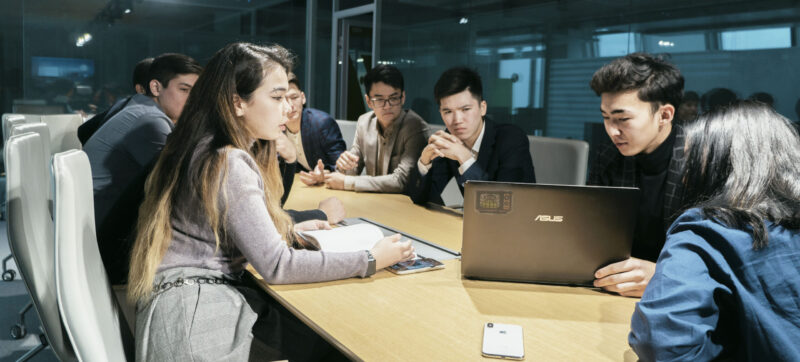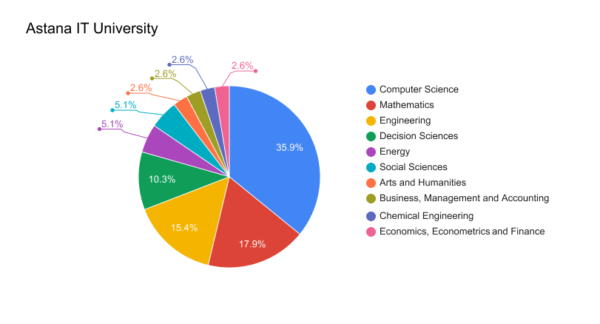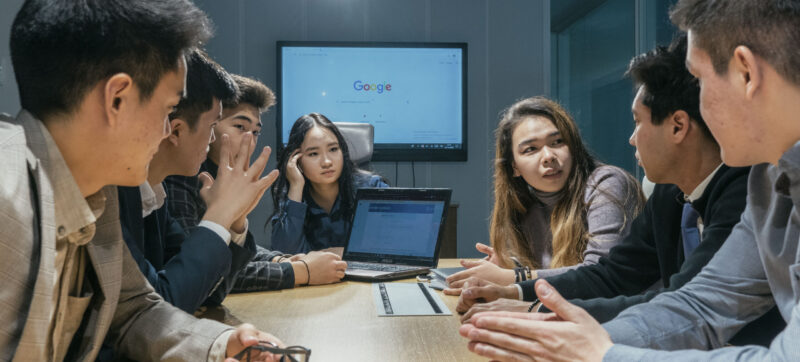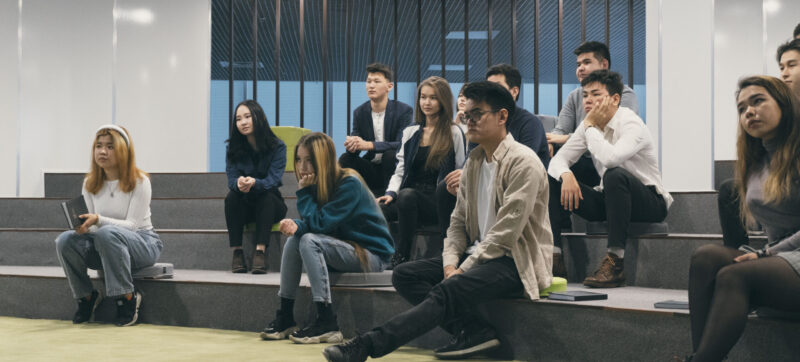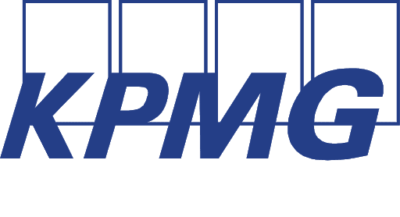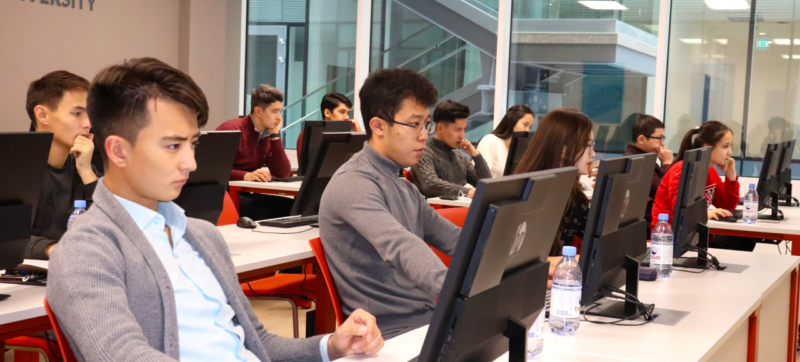Project №3: AP13268877 «Development of manufacturing technology for radiation-resistant electronic components of artificial Earth satellites»
Scientific adviser: Almassov N.Zh.
Competition name: MSHE of RK, «Zhas galym» 2022-2024
Financing amount: 15,897 million tenge
Annotation: Radiation in the form of energetic electrons, protons and photons poses a great threat to systems that operate in or travel through space. The effects of radiation on electronics and printed circuit boards can range from temporary failure to permanent degradation or complete shutdown. Research into ways to combat this threat has been, and continues to be, the focus of aerospace companies, NASA, and the military. To date, the best protection is the use of radiation-resistant electronics for space conditions. This project is aimed at developing the scientific foundations for the technology of manufacturing radiation-resistant memory devices. Successful development of this technology will result in electronic components with improved electrical properties.
Project №4: AP13268744 «Development of intercultural citizenship in the context of internationalization of higher foreign language education of the Republic of Kazakhstan»
Scientific adviser: Gerfanova E.F.
Competition name: MSHE of RK, «Zhas galym» 2022-2024
Total amount: 17 636 050 tenge
Annotation: Intercultural aspects of language teaching/learning are becoming increasingly important as higher education in general, and foreign language (FL) education in particular, are being transformed and modernized under the influence of internationalization processes. The concept of intercultural citizenship in education is associated with the training of professional personnel who can successfully function in intercultural situations in various communities, both on the local and global levels. However, most of the discussions on the problem of developing intercultural citizenship in the context of foreign language education are currently being conducted at the theoretical level. There is no empirical evidence to support the extent to which the study of a foreign language can lead to the formation and further development of global citizenship and intercultural understanding. The aim of the project is to develop and describe effective methods for the formation of students’ intercultural citizenship in the context of the foreign language educational process of higher education of the Republic of Kazakhstan and the fostering of their intercultural understanding through the study of a foreign language and FL culture.
Project №5: AP13268872 «Digital transformation for creating circular economy in tourism»
Scientific adviser: Samalgul Nassanbekova
Competition name: MSHE RK, Grant funding for young scientists under the «Zhas Galym» project for 2022-2024
Financing amount: 17,848 million tenge
Abstract: As a result of the study, a framework will be developed that defines the requirements for digital solutions necessary for the transition to a circular sustainable tourism development strategy, which will serve as the basis for creating a roadmap for implementation, replenish the knowledge base in this area, determine the necessary institutional transformations for digitalization when creating circularity in tourism.
Project №6: AP14972763 «Cornea anisotropy imaging using hybrid Brillouin-Raman micro-spectroscopy»
Scientific adviser: Kharmyssov C.
Name of the project: MSHE of RK, 2022-2024 years (28 months)
Result, amount: 19 mln.tg
Annotaion: The mechanical and chemical properties of the cornea are linked to ocular diseases and therapeutic procedures. Brillouin microscopy is a novel and emerging non-contact spectroscopic sensing technology that enables the measurement of viscoelastic properties of a material. Raman micro-spectroscopy on the other hand is a powerful non-invasive optical tool for bio-photonic research and sensing applications targeting the chemical properties of tissues. In this project, we will present a hybrid spectroscopic technique for cornea mechano-chemical imaging and microstructure analysis that combines Brillouin and Raman spectroscopies with confocal microscopy into a single bio-imaging modality. This hybrid integrated approach to bio-sensing enables probing mechanical and chemical properties of the cornea simultaneously in a non-contact and non-invasive fashion with micrometer spatial resolution using a single laser probing source. Additionally, corneal anisotropy will be tested at different collagen orientations of the cornea. An automated data analysis technique will be developed for spatial integrated mapping of Brillouin and Raman spectral peaks (position, linewidth, and intensity). Merged spectral images will be further analyzed using machine learning algorithms for extraction of correlated mechano-chemical information of diseased and healthy cornea with micron-scale spatial resolution.
Project №7: AP14973006 «Investigation of methods of maintaining confidentiality in the process of interaction of the Internet of Things»
Scientific adviser: Adamova A.D.
Name of the project: MSHE of RK, «Zhas Galym» 2022-2024
Financing amount: 19.000 mln.tg
Annotaion: The idea of the project is to investigate privacy preserving methods in wireless sensor networks. Today, wireless sensor networks are one of the fundamental technologies of Internet of Things interaction. When Internet of Things devices communicate with each other, there are well-known resource constraints, such as energy, memory, bandwidth, etc. These constraints affect the real-time interaction of Internet of Things and bring with them the problem of security of personal data of network users. The project aims to address privacy issues by exploring methods in the Internet of Things interaction process.
Project №14: AP15473157 «Development of an intelligent photo and video analytics system for solving the tasks of recognizing the actions of a person or a group of people»
Scientific adviser: Islamgozhayev T.U.
Name of the project: MSHE of RK, 2022-2024
Financing amount: 18.745 mln tg
Annotaion: Currently, automated surveillance systems are used everywhere to solve a wide range of problems. Analysis scenarios include the use of motion detection, crowd behavior, individual behavior, interaction between people and their environment. These automated systems perform many tasks, including detection, interpretation, understanding, recording, and generation of alarms based on analysis. One of the important tasks in recognizing human actions is the correct interpretation of actions based on images taken from different angles. This work is aimed at researching and developing a system for recognizing the actions of a person or a group of people from images taken from CCTV cameras, which makes it possible to obtain images of one or more people from different angles.
Project №10: AP13268872 «Digital transformation for creating circular economy in tourism»
Scientific adviser: Samalgul Nassanbekova
Competition name: MSHE RK, Grant funding for young scientists under the «Zhas Galym» project for 2022-2024
Financing amount: 17,848 million tenge
Abstract: As a result of the study, a framework will be developed that defines the requirements for digital solutions necessary for the transition to a circular sustainable tourism development strategy, which will serve as the basis for creating a roadmap for implementation, replenish the knowledge base in this area, determine the necessary institutional transformations for digitalization when creating circularity in tourism.


